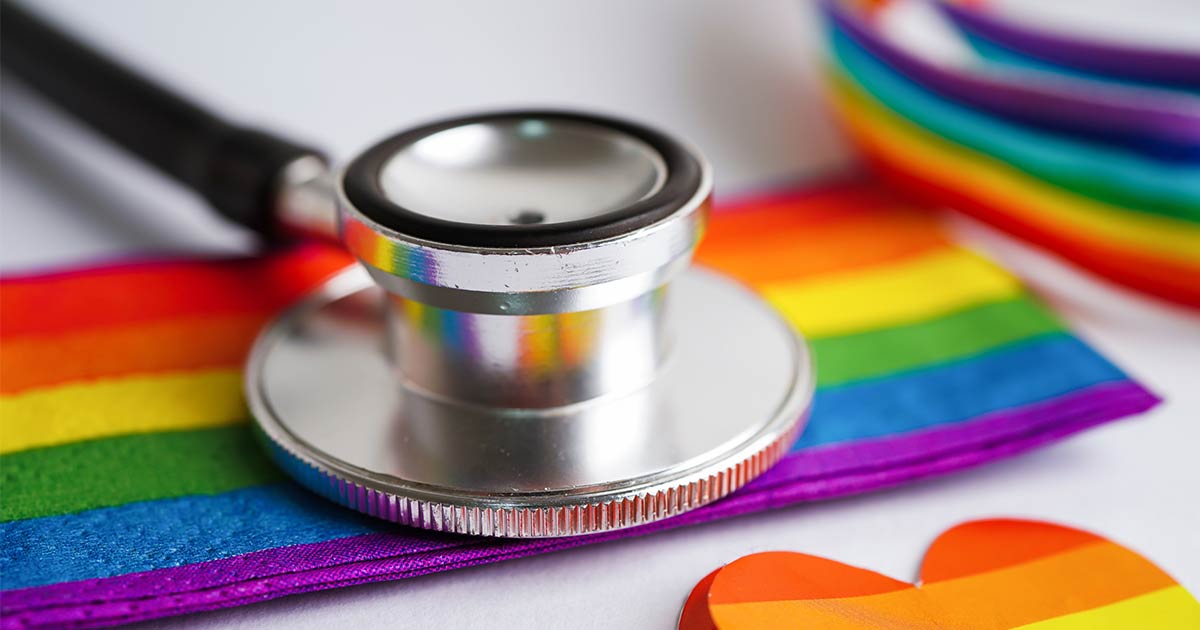LGBTQIA+ South Africans Face “Indignities and Abuse” in Public Health System

A survey of almost 14,000 people has revealed a crisis in South Africa’s public health system for individuals using drugs, sex workers, and members of the LGBTQIA+ community.
On Friday, the Ritshidze community-led monitoring project launched a report highlighting the poor quality of health services provided to these “key population” groups in South Africa. This is the third annual state of healthcare report of its kind.
The data, based on interviews with 13,832 key population group individuals across the country, was released to “expose the truth of the daily indignities, abuse, and humiliation that some people must endure while simply trying to access health services,” said Ritshidze.
“Commonly, people who are queer or trans, use drugs, or engage in sex work, face uncaring, disrespectful, cruel, and even abusive treatment at public health facilities. Most typically from clinical staff like doctors and nurses, as well as security guards (who are meant to protect and keep people safe),” asserted the researchers.
“Frequently, people are laughed at and judged, and at worst, denied services or chased away. It can be unbearable and leave deep scars. Ultimately, it forces some people to stop going to the clinic entirely,” they noted.
Numbers Show an Uncaring and Stigmatising Public Health System
According to the report, while most members of key populations (75%) receive services at public health facilities, only 35% of trans people, 33% of GBMSM (gay, bisexual, Men who have Sex with Men), 26% of sex workers, and as few as 17% of people who use drugs said staff were always friendly at public health clinics.
The study also found that confidentiality violations are abundant at these facilities, with 57% of GBMSM, 61% of trans people, 65% of sex workers, and 74% of people who use drugs reporting that privacy was not well respected.
Alarmingly, some facilities even deny people ARVs or health services entirely. Of those surveyed, 8% of GBMSM, 10% of trans people, 11% of sex workers, and 31% of people who use drugs said they’d been denied services in the last year because of being a member of a key population.
The report confirmed that gender-affirming care for transgender South Africans is woefully inadequate at public health facilities, with hormones generally unavailable. Only 32% of trans and gender diverse people reported that facility staff were always respectful of their gender identity.
While safe and caring post-violence services are essential in the context of an epidemic of gender-based violence, abuse against sex workers, and attacks on queer and trans people, only 56% of GBMSM, 56% of trans people, and 47% of sex workers who needed these services were able to access them. Some people even reported being refused a J88 form needed to open a case at the police station.
NGO Key Populations Health Services Better But Not Enough
The researchers found that drop-in centres and mobile clinics run by NGOs targeting key populations perform far better than public healthcare facilities. However, they say there are simply too few of these services to reach South Africa’s key populations.
They have recommended a dramatic expansion in so-called Centres of Excellence, public health clinics that are sensitised, trained, and staffed to provide specialised services to key populations.
Ritshidze also called for all facility staff (including clinical staff, non-clinical staff, lay staff, and security guards) who mistreat people, violate people’s privacy, or verbally or physically abuse or harass people to be held accountable and face consequences.
Other actions that should be taken include providing gender-affirming services in local public health facilities, including access to hormone therapy and gender-neutral toilets, and increasing the availability of PrEP, condoms and lubricants, methadone, and other substance use harm reduction services.
“Urgent and drastic improvement is critical to the public healthcare system to ensure that people who use drugs, sex workers, and LGBTQIA+ community members are treated with dignity and respect and can protect their own health and lives,” said Ritshidze.
Leave a Reply